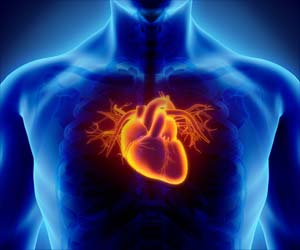Artificial intelligence (AI) outshines doctors at predicting heart disease deaths, reveals a new study.

The study adds to the growing evidence that AI could revolutionize healthcare in the UK and beyond. So far, the emphasis has been on the potential of AI to help diagnose and treat various diseases, but these new findings suggest it could also help predict the likelihood of patients dying too.
"It won't be long before doctors are routinely using these sorts of tools in the clinic to make better diagnoses and prognoses, which can help them decide the best ways to care for their patients," says Crick scientist Andrew Steele, first author of the paper.
"Doctors already use computer-based tools to work out whether a patient is at risk of heart disease, and machine-learning will allow more accurate models to be developed for a wider range of conditions."
Data-driven Model
The model was designed using the electronic health data of over 80,000 patients, collected as part of routine care, and available for researchers on the CALIBER platform.
Advertisement
Coronary artery disease develops when the major blood vessels that supply the heart with blood, oxygen, and nutrients become damaged or narrowed by fatty deposits. Eventually restricted blood flow to the heart can lead to chest pain and shortness of breath, while a complete blockage can cause a heart attack.
Advertisement
Outperforming Experts
Not only did the new data-driven model beat expert-designed models at predicting patient mortality, but it also identified new variables that doctors hadn't thought of.
"Along with factors like age and whether or not a patient smoked, our models pulled out a home visit from their GP as a good predictor of patient mortality," says Andrew.
"Home visits are not something a cardiologist might say is important in the biology of heart disease, but perhaps a good indication that the patient is too unwell to make it to the doctor themselves, and a useful variable to help the model make accurate predictions."
This study was a proof-of-principle to compare expert-designed models to machine learning approaches, but a similar model could be implemented in the clinic in the not too distant future.
"Machine learning is hugely powerful tool in medicine and has the ability to revolutionize how we deliver care to patients over the next few years," says Andrew.
Source-Eurekalert















